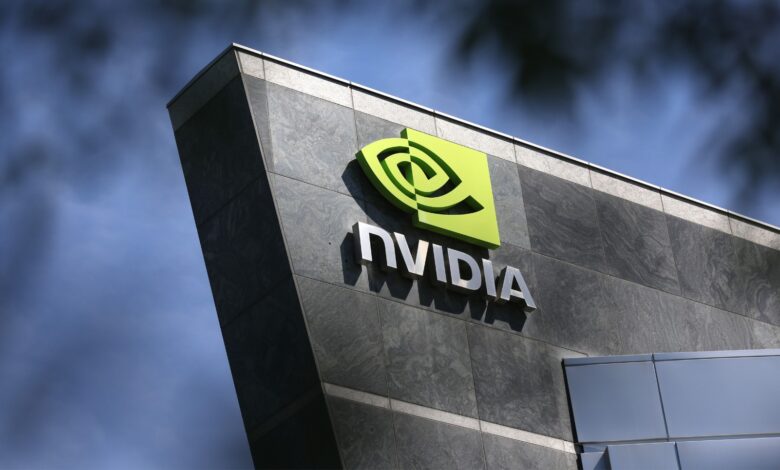Is DeepSeek the Catalyst for an AI Bubble Burst? What It Means for NVIDIA

The tech world is buzzing with a critical question: Could NVIDIA face a fate similar to Cisco after the dot-com crash? The rise of AI tools like DeepSeek has sparked debates about whether the AI boom is sustainable—or if it’s heading for a reckoning. Let’s break it down.
NVIDIA’s AI Gold Rush
NVIDIA has become the backbone of the AI revolution. Its powerful GPUs are in sky-high demand as startups and tech giants pour billions into building AI models. But here’s the catch: this explosive growth mirrors Cisco’s story during the late 1990s dot-com bubble.
Back then, Cisco supplied the networking gear that powered the internet boom. Startups bought their hardware like candy, only to collapse when the bubble burst. Overnight, the market drowned in cheap, second-hand Cisco equipment. Demand vanished, and the company’s growth flatlined for a decade.
Sound familiar?
DeepSeek: A Game-Changer for AI?
Enter DeepSeek. If this technology lives up to the hype, it could disrupt the need for massive GPU investments. Imagine AI models becoming so efficient that they require far less computing power—or worse (for NVIDIA), startups failing to monetize their AI tools despite their hardware spending.
Here’s where things get risky for NVIDIA:
-
Startup Collapse = GPU Glut
Many AI startups survive on venture capital, not revenue. If they fail, their warehouses full of NVIDIA GPUs could flood the second-hand market. Cheap, barely-used chips would undercut sales of new hardware. -
The “Magnificent 7” Slowdown
Big players like Google or Meta, driving much of NVIDIA’s sales, might pause orders if they realize their existing GPUs are sitting idle. Why buy new when you’re not even using what you have? -
Cloud Shake-Up
Startups renting out NVIDIA-powered servers might struggle to turn a profit, adding even more GPUs to the second-hand pile.
Cisco vs. NVIDIA: A Warning from History
The parallels are hard to ignore:
-
Speculative Demand
Both companies thrived during “gold rush” eras. Cisco fed the dot-com frenzy; NVIDIA fuels the AI race. But when hype fades, oversupply follows. -
Startup Dependency
Cisco relied on cash-burning internet startups. NVIDIA’s growth now hinges on AI ventures that may never turn a profit. -
The Second-Hand Storm
After the dot-com crash, Cisco’s market drowned in cheap used gear. NVIDIA could face the same if GPUs flood eBay. -
Growth Cliff
Cisco never regained its 1990s momentum. If the AI bubble pops, NVIDIA’s record-breaking sales might stall for years.
Broader Risks for the Tech World
A NVIDIA slowdown wouldn’t happen in a vacuum:
-
AI Hardware Companies: Firms building tools specifically for NVIDIA GPUs could face collapse.
-
Market Valuations: NVIDIA’s trillion-dollar valuation relies on endless AI growth. A correction could spook investors.
-
New Tech Shifts: If AI pivots to decentralized or energy-efficient models (think quantum computing or neuromorphic chips), NVIDIA’s GPU dominance could fade.
What’s Next for NVIDIA?
NVIDIA isn’t doomed—yet. The company has smartly diversified into AI software and cloud partnerships. But the threat is real. For now, demand for GPUs remains strong, but the industry is watching closely for cracks.
Key Takeaways:
-
The AI boom could follow the dot-com bust playbook.
-
DeepSeek’s efficiency gains or startup failures might trigger a GPU oversupply.
-
NVIDIA’s long-term success depends on adapting faster than Cisco did.
Final Thoughts
Tech history loves repeating itself. Cisco’s crash wasn’t just about bad luck—it was about betting too hard on a speculative bubble. NVIDIA faces the same test. Will AI transform industries forever, or is this another hype cycle nearing its end? Only time will tell, but one thing’s clear: the stakes have never been higher.
What do you think? Is the AI bubble real, or is this just another bump in the road? Let us know in the comments!
In case you have found a mistake in the text, please send a message to the author by selecting the mistake and pressing Ctrl-Enter.
https://techplanet.today/storage/posts/2025/01/27/I8zzq4XZ1ud7sbT24kJuulbMLM5xuBTfWHU2E5kh.jpg
2025-01-26 23:42:12




